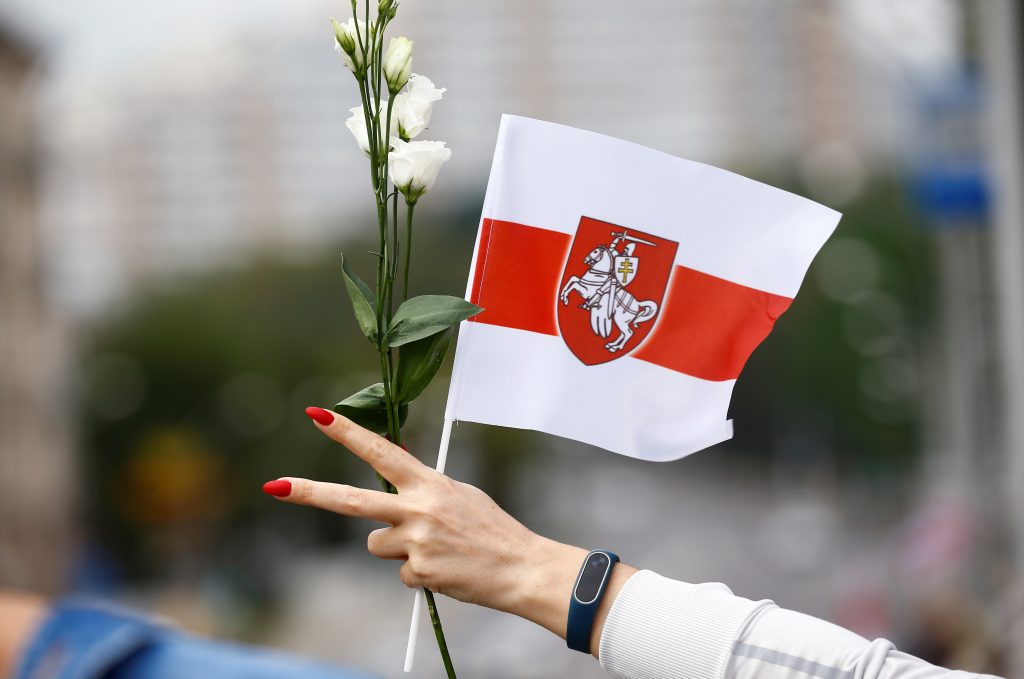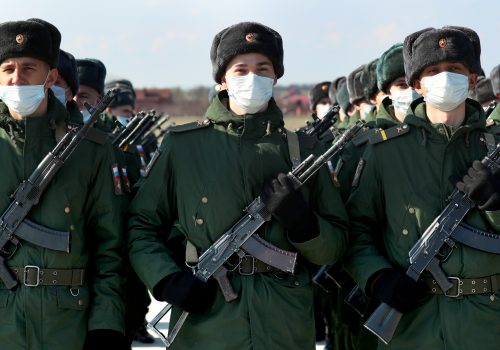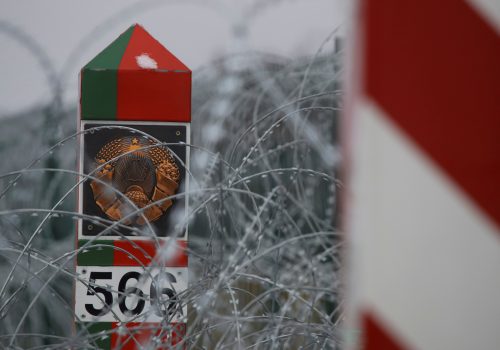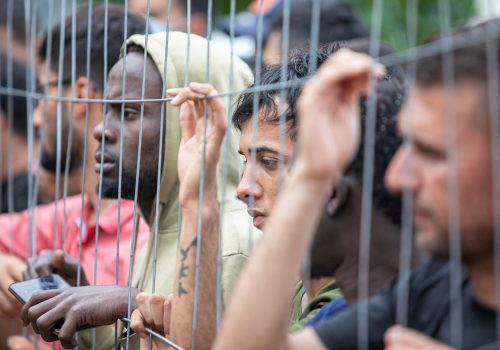Powerful documentary film “Courage” aptly portrays the tragedy of Belarus and the recent attempt by its people to overthrow their repressive dictatorship. In August 2020, Belarusians peacefully protested the rigged re-election of President Alyaksandr Lukashenka, but the regime reacted with violence and a vicious crackdown that has led to deaths, injuries, thousands of arrests, and exile for many.
This important documentary had its world premiere at the Berlinale this year and combines storytelling with compelling footage of events that illustrate the brutality of the regime and the importance of supporting the ongoing struggle in Belarus.
“Courage” profiles three members of the Belarus Free Theater as they participate in the resistance. Denis Tarasenka works as an auto body repair technician after being blacklisted from his craft three years earlier by the government for his political beliefs. Maryna Yakubovich, a young mother, and Pavel Haradnizky remain members of the troupe, but all three are torn between their ideals and the dire consequences they face as dissidents.
The documentary, directed by Belarusian Aliaksei Paluyan, chronicles the events following the August 9, 2020 presidential election. Almost immediately, word began to spread of massive electoral fraud and people took to the streets. Initially, they arrived in a festive mood, with some women dressed up wearing heels and students draped in traditional Belarusian national flags. Then police moved in with flash grenades, rubber bullets, and truncheons.
In the days that followed, roughly 7,000 were arbitrarily arrested then held for extended periods in overcrowded cells. Hundreds were beaten and subjected to a range of abuses. Many of the scenes from the documentary are genuinely heartbreaking, such as the segment filmed at a vigil for a murdered protester and footage outside Minsk’s notorious prison as people anxiously wait for news of loved ones.
Maryna attends the protests but isn’t arrested. She discusses with her husband, in the safety of their spartan flat, their dilemma. Is it better for a child to risk losing one parent, or should they compromise their ideals? Do they stay and fight, or accept a life of exile in a free country?
Pavel asks a compatriot living abroad about escape and is told that the borders with Ukraine and Poland can be crossed easily. He later says to his wife: “we have to explore our options. London or Kyiv.”
Denis asks a middle-aged colleague at work: “did you go to the revolution?” The man laughs and says “no” then cautions him that a friend told him that the regime was “on the verge of opening fire on civilians.”
In one telling set piece, Denis sets up a makeshift target behind his workplace and shoots arrows from a homemade crossbow. Clearly, the Belarusian opposition movement cannot match the government’s firepower.
All three featured actors and their families eventually fled the country.
Meanwhile, Lukashenka’s crackdown continues. Dozens of journalists and lawyers who have spoken out have been arrested and charged, and a “purge” has been launched against leading civil society groups.
Activist Siarhei Tsikhanouski, who first challenged Lukashenka and planned to run against him in the 2020 presidential election, was jailed before he could so. His wife, Svitlana, ran in his place. Many believe she actually won the August 2020 vote.
However, Svitlana was forced to flee the country in the days following the election and now lives in exile with their two children while travelling the world as a figurehead for the opposition movement to drum up support for a democratic Belarus. Her husband was recently sentenced to 18 years imprisonment.
Eurasia Center events

The film is timely, given that Ukraine is currently under threat from a major escalation in Vladimir Putin’s ongoing war against the country. Tens of thousands of Russian troops are concentrating along Ukraine’s borders, including the border with Belarus. To Putin, Kyiv’s success in overcoming Kremlin domination and embracing democracy is infuriating and poses a direct threat to the future of his own authoritarian regime.
This is because Ukraine has accomplished what Belarus could not achieve. In 2004, the Orange Revolution overturned a presidential election that had been rigged in favor of pro-Russian candidate Viktor Yanukovych. In the 2014 Revolution of Dignity, Ukrainians drove Yanukovych out of office. He fled to Russia while Ukraine turned decisively westwards.
Ukraine succeeded in transitioning towards democracy thanks to the country’s relatively free press and competitive political culture. As a result, Ukraine’s civil society was able to grow and become resilient, going on to play a key role in the defeat of tyranny.
In contrast, Belarus’s attempted pro-democracy revolution has been crushed by Lukashenka’s brutal Kremlin-backed dictatorship, which has outlawed free speech, controls the media and the economy, and has comprehensively Russified Belarusian society.
The documentary “Courage” begins and ends with a haunting musical lament written by Ukrainian-Canadian Mark Marczyk. It is the woeful melody of a nation yearning for liberty and justice that is still denied. Tragically, the struggle in Belarus has only just begun. May it one day succeed.
Diane Francis is a Nonresident Senior Fellow at the Atlantic Council’s Eurasia Center, editor-at-large with the National Post in Canada, author of ten books, and author of a newsletter on America.
Further reading
The views expressed in UkraineAlert are solely those of the authors and do not necessarily reflect the views of the Atlantic Council, its staff, or its supporters.

The Eurasia Center’s mission is to enhance transatlantic cooperation in promoting stability, democratic values and prosperity in Eurasia, from Eastern Europe and Turkey in the West to the Caucasus, Russia and Central Asia in the East.
Follow us on social media
and support our work
Image: A protester holds a flag and flowers during an opposition demonstration against presidential election results in Minsk, Belarus August 22, 2020. (REUTERS/Vasily Fedosenko)




